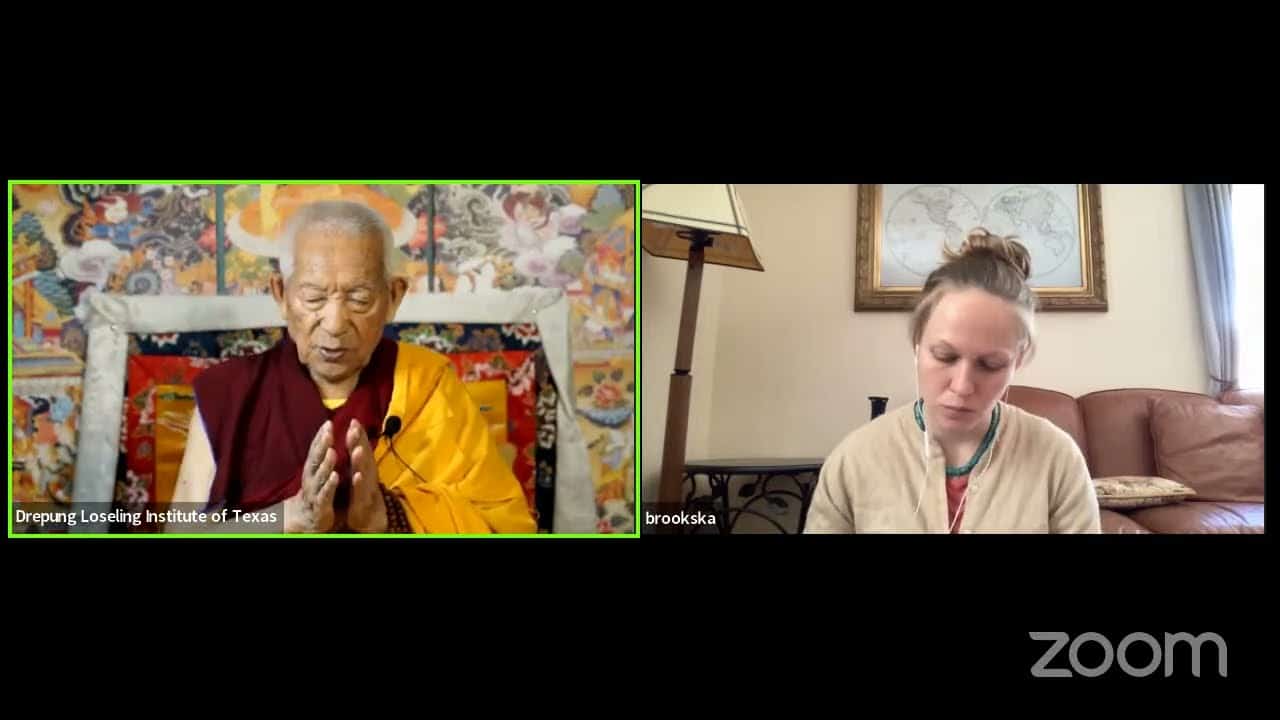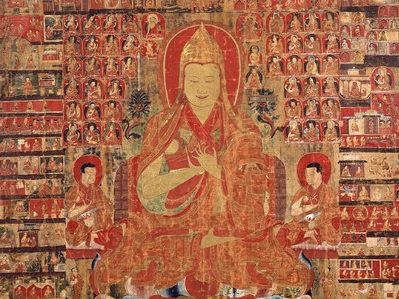The Gift of Offering Service
Venerable Thubten Chodron discusses the difference between "work" and "offering service" in this talk for the Bodhisattva's Breakfast Corner.
I wanted to continue with the last several BBCs, which are a continuation of what I was speaking on in the Shiksamana training course. The first talk, which I never got to finish, is continuing now. The last time I finished talking about the monastic mind, and now I want to talk about the offering service prayer that people know by heart and say every day, but probably don’t think about a lot, because that’s what often happens when we have something memorized. Let’s think about it today.
It starts out with: “We are grateful for the opportunity to offer service to the buddha, dharma, and sangha and to sentient beings.” Now, why should we be grateful for the opportunity to offer service? “‘Offer service’ is just code for work. [laughter] And I don’t want to work.”
So, what’s the difference between work and offering service?
Audience: The mind?
Venerable Thubten Chodron (VTC): Yeah, the mind is the big difference. But it’s strange how the prayer says offering service, but our mind thinks work. Whenever we think work, what do we think? We don’t think, “Oh good, I can make a contribution. I can be creative. I can do something productive.” Whenever we say the word work we think difficult, hard, grumpy. “I don’t want to do it. People bossing me around telling me what to do: get me out of here!” It’s interesting, isn’t it? I mean, work is a four-letter word; we know about four-letter words. [laughter] But it’s just one word, and we attach all this meaning to it. We can’t see how stuck we are in the idea of work that we can’t impute something different to offering service. Do you think offering service is offering an obligation? No. When we offer it’s something freely given. It is something we delight in doing. It’s something that’s just part of how human beings connect with one another—we offer to each other.
The cooks are offering us lunch today. Yesterday the people brought up food—they offered the food. We have this building because other people offered their hard-earned money. So, offering is how human beings connect, how we build things together, and it’s done with a happy mind. But it’s interesting how difficult it is here for us who are Buddhists and who realize that things are merely designated. We attach a meaning to a word that it doesn’t usually have, like offering service equals work. Would you provide service again? It’s a totally different feeling. It’s not work. Once you serve somebody, or somebody serves you, it’s very different from a business deal where you give something and they give something back. Or actually, first they give you something and then you give them something back. Service is something different.
Again, for me, I have the idea of service also being a gift. You serve somebody; you do something. So, why is it that we think of work when it’s offering service time? What’s going on in our heads? And why when we say that four-letter word “work” is it almost as bad in our mind as if somebody said some other four-letter word, which I won’t repeat? In fact, we hear work, and we respond with other four-letter words. [laughter] This is all our berserky mind.
When you think about it, having the chance to offer service means that we have an opportunity to give and to give something that is of value. Service is something that is of value; it’s not like giving drugs and alcohol. It’s an opportunity to give something of value to the Buddha, Dharma, and Sangha. They are the ones that we rely on for our whole spiritual path; they are the most sacred ones in our minds. We don’t want to offer service to them? What? Do we really understand who the Buddha, Dharma, and Sangha are or what they are? Do we really understand their place in our lives? Do we know all that they do for us?
If we understood that, offering service would just be what we do all day. And similarly with sentient beings, if we understood the kindness of others and of sentient beings and how much our whole life depends on sentient beings, then we would understand that offering service is such a privilege. What a privilege to be able to offer service and repay the kindness of the two fields of merit that have given us the most in our lives and enabled us to stay alive and that will enable us to attain awakening.
We have to remember when we say the words “Buddha, Dharma, Sangha” that they’re important in our lives. If you hadn’t met the Buddha, Dharma, Sangha, where would you be right now? What would you be doing? And if we didn’t have the support of all the sentient beings in our lives—educating us, treating us when we were sick, and so on—where would we be? If we didn’t have the help of sentient beings, we wouldn’t be eating lunch soon. Okay? Think about this so that when we say we are grateful for the opportunity to offer service to the Buddha, Dharma, and Sangha, we’re really grateful.The opportunity to do this does not occur in every lifetime or every realm. There are so many realms, and even in the human realm, where people do not have the opportunity to offer service to the Three Jewels. But we have that opportunity.
We have the opportunity to repay the kindness of sentient beings. This is actually quite a precious opportunity. Let’s not let our mind turn it into a chore, or into something we don’t want to do that then makes us miserable when we do it. It’s so interesting, isn’t it? We have so many chances to be joyful in our life, and we make them all into situations where we’re miserable: “I don’t want to do this.” And yet, it’s just our mind. It’s like changing the mind, and then it becomes joyful. So, let’s try to remember that and put that into practice.
Venerable Thubten Chodron
Venerable Chodron emphasizes the practical application of Buddha’s teachings in our daily lives and is especially skilled at explaining them in ways easily understood and practiced by Westerners. She is well known for her warm, humorous, and lucid teachings. She was ordained as a Buddhist nun in 1977 by Kyabje Ling Rinpoche in Dharamsala, India, and in 1986 she received bhikshuni (full) ordination in Taiwan. Read her full bio.


